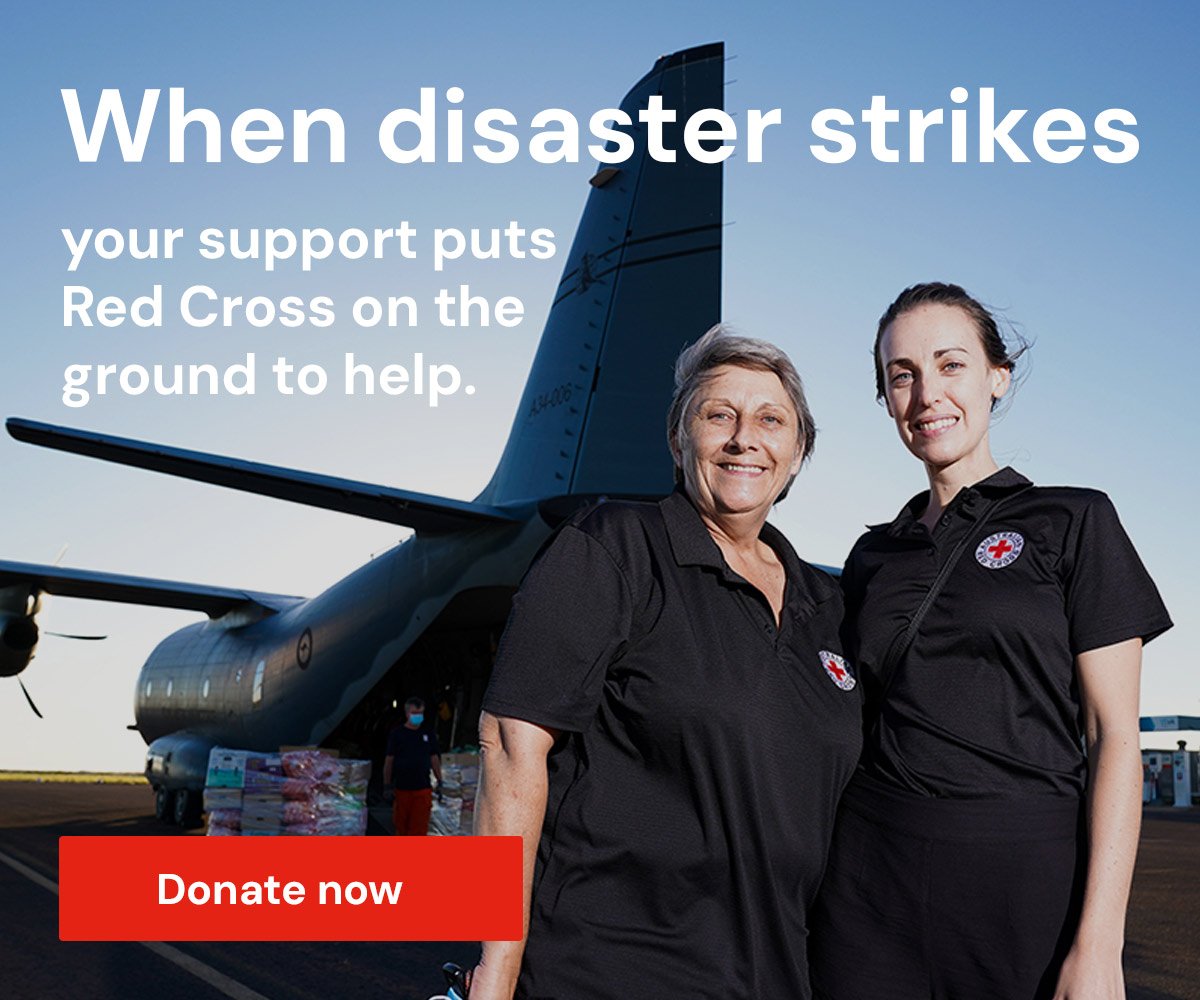Latest news and stories
Filter stories by topic
Queensland and New South Wales Floods Report
Two years after devastating storms and floods hit Queensland and New South Wales, the work of recovery continues.
A global Movement responds: two years of conflict in Ukraine
Australian Red Cross Ukraine Crisis Appeal two-year impact report.
What being there looks like when disasters strike
The generosity of our donors puts our people on the ground where it’s needed most.
How your donation made a difference in Türkiye and Syria
From heartbreak to healing: Türkiye Syria Earthquakes Appeal 12 month impact report
“I always thought the water would go somewhere, but not in the house.”
When Priscilla had to leave her home in Ballina, NSW, as floodwaters rose, Red Cross was there for her.
Early response is critical
In the darkness at 2:30am, Ron and Fleur waded through waist-high water to find safety on the steps of the local hall.
Diary of an aid worker: back to Pentecost
Steve Barton reflects on returning to the place his aid work journey began almost 20 years ago.
Helping young people in crisis feel human again
Our Night Café is a safe after-hours space for people aged 12 to 25 years old experiencing or at risk of homelessness in Brisbane.
Helping people survive tough times
Every day of the year, volunteers hit the streets in our Soup Patrol van, serving hot, nutritious meals to some of the most vulnerable people in Perth and Fremantle.
“I’d just lost 54 years of my life.”
Mark was rescued from raging flood waters in Bungawalbin, NSW. Australian Red Cross was there to help him.
Black Mist and the Ban
On the 70th anniversary of the first nuclear weapon test on mainland Australia, we support the call for a nuclear weapons ban.
How a food hub tapped into a community’s passion
The Brighton Community Food Hub is about more than helping families put a meal on the table.
Morocco earthquake response
An update on the swift, locally-led response, delivering essential goods and support.
Keeping a community connected
A year after the worst flood in more than 70 years, the Hunter Valley village of Broke is recovering one day at a time.
Floods, fires and a pandemic
Red Cross Emergency Services volunteer Megan Fraser is “ready for anything”.
“We can’t say thank you enough”
Ray and Bev were rescued from floodwaters in the Victorian town of Rochester. At the Bendigo Relief Centre, Red Cross was there to meet them.
A mother's journey from Kharkiv to Perth in search of safety
“Thank you, Australia, for giving me hope, a new home, and reminding me no matter where we come from, we can build a better tomorrow together.”
“The response of local teams was nothing short of astonishing”
Six months after devastating earthquakes in Türkiye and Syria, Red Cross continues to support people on the road to recovery.
Northern Territory floods: recovery will be long and complex
When three remote First Nations communities were evacuated, Red Cross teams were on hand to help – support that continues as people return home.
A friend at your side through the good times and the bad
For Rita, her Red Cross visitor is more than a friend. She is like a sister. And on the hard days of life, Lyn helps her find the sunny side.
When there's nowhere else to turn
“I am with you on this journey. I hear you. I understand your issues. You are not alone.”
Refugee Week: 10 things you can do to help
Play your part in building a more welcoming Australia for refugees.
"We will heal the wounds of this disaster together."
On the ground after devastating earthquakes.
Charity donations of $2 or more to Australian Red Cross may be tax deductible in Australia. Site protected by Google Invisible reCAPTCHA. © Australian Red Cross 2024. ABN 50 169 561 394

